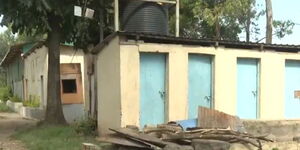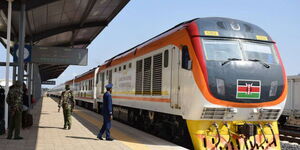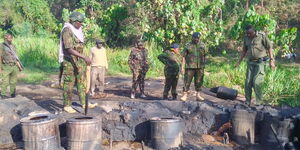Despite the full capacity of Ndakaini Dam that largely supplies Nairobi County with water, city residents are set to experience continued rationing of water in their homes due to lack of adequate pipes to pump enough water that would ensure residents have water all the time.
In a report by the Daily Nation, Nairobi City Water and Sewerage Company (NCWSC) managing director Nahashon Muguna indicated that the existing pipes can pump 525,600 cubic metres per day, which is way below the daily water demand of the city’s growing population.
“Rationing of water is there to stay until new lines are built. The current demand is 790,000 cubic metres per day and it has been growing by nearly 20,000 cubic metres every year,” he remarked.
Muguna further indicated that the current pipe system was meant to serve the county up until the year 2000 but no upgrade took place as recommended.
Among the city residents hard hit by water rationing include hose residing in Lang’ata, Umoja and Kawangware areas.
The Daily Nation further explains that the lack of enough water in the city has led to increased instances of illegal connections and an increased number of illegal water vendors.
According to The Standard on December 16, Water vendors took advantage of these shortages to make a killing selling a 20-litre jerry can for as much as Sh50.
The source of water sold by water vendors is mostly unknown, hence its safety cannot be vouched for.
In July 2017, the cholera outbreak affected residents in various sections of the city leading to at least three deaths with the county government health officials blaming it on unsafe water supplies by the vendors.
The Nairobi County Government often blames the shortages on low water levels at the Ndakaini Dam that supplies 84 percent of water used in Nairobi. Sasumua Dam supplies 11 percent.
Nairobi Water and Sewerage Company started rationing water to city residents in 2017 due to rapidly plummeting water levels in Ndakaini but this has continued even after the dam filled up.
The water management response comes at a moment when Ndakaini Dam, the key water supplier to Nairobi County, has its levels at the brim with reports indicating that the dam is already at full capacity.
The county government is now placing its hopes on the ongoing construction of the 11.8km Northern Water Collector Tunnel to stabilise supply set to be complete by 2020.
The line will tap floodwater from Maragua, Gikige and Irati rivers in Murang’a county and drain it into Ndakaini dam, although this will still not alleviate the problem of water shortage until the city pipeline system is upgraded.












